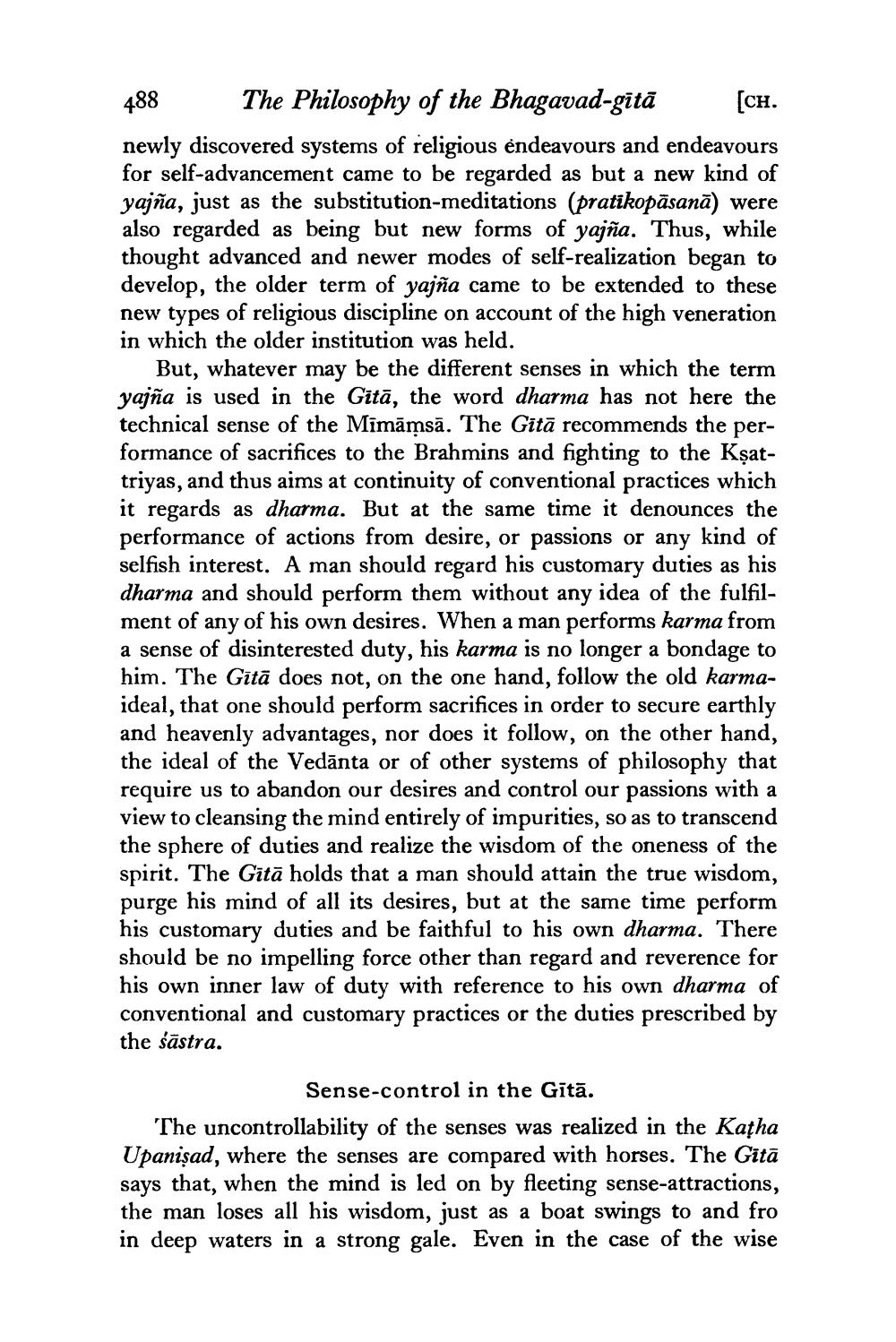________________
488 The Philosophy of the Bhagavad-gitā [CH. newly discovered systems of religious endeavours and endeavours for self-advancement came to be regarded as but a new kind of yajña, just as the substitution-meditations (pratikopāsanā) were also regarded as being but new forms of yajña. Thus, while thought advanced and newer modes of self-realization began to develop, the older term of yajña came to be extended to these new types of religious discipline on account of the high veneration in which the older institution was held.
But, whatever may be the different senses in which the term yajña is used in the Gitā, the word dharma has not here the technical sense of the Mīmāmsā. The Gitā recommends the performance of sacrifices to the Brahmins and fighting to the Kşattriyas, and thus aims at continuity of conventional practices which it regards as dharma. But at the same time it denounces the performance of actions from desire, or passions or any kind of selfish interest. A man should regard his customary duties as his dharma and should perform them without any idea of the fulfilment of any of his own desires. When a man performs karma from a sense of disinterested duty, his karma is no longer a bondage to him. The Gītā does not, on the one hand, follow the old karmaideal, that one should perform sacrifices in order to secure earthly and heavenly advantages, nor does it follow, on the other hand, the ideal of the Vedānta or of other systems of philosophy that require us to abandon our desires and control our passions with a view to cleansing the mind entirely of impurities, so as to transcend the sphere of duties and realize the wisdom of the oneness of the spirit. The Gītā holds that a man should attain the true wisdom, purge his mind of all its desires, but at the same time perform his customary duties and be faithful to his own dharma. There should be no impelling force other than regard and reverence for his own inner law of duty with reference to his own dharma of conventional and customary practices or the duties prescribed by the sāstra.
Sense-control in the Gītā. The uncontrollability of the senses was realized in the Katha Upanişad, where the senses are compared with horses. The Gītā says that, when the mind is led on by fleeting sense-attractions, the man loses all his wisdom, just as a boat swings to and fro in deep waters in a strong gale. Even in the case of the wise




